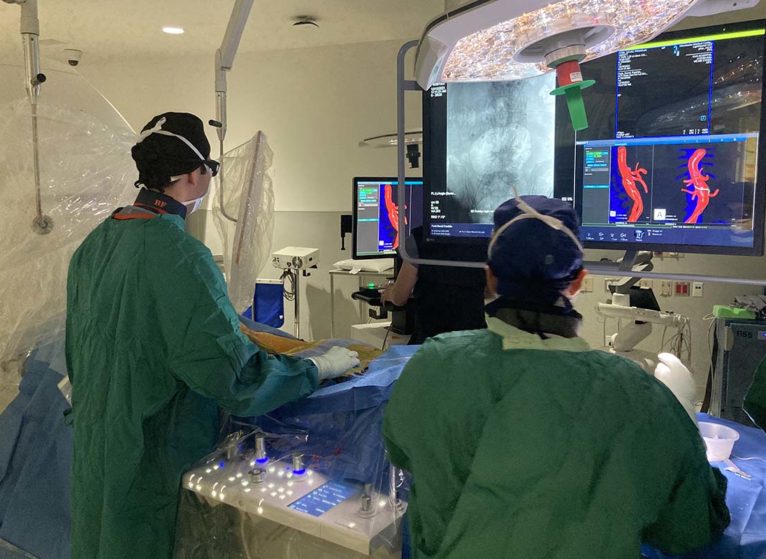
In June 2021, UVA Health opened a new Aortic Center. The program quickly became a national leader in advanced patient care, research, and educating healthcare providers.
But what does that mean for you as a patient? When you hear “Aortic Center,” it might not be clear what kinds of problems we treat here.
We sat down with Behzad Farivar, MD, co-director of UVA Health Aortic Center, to learn more about the new center and its services.
Find Treatment for Aortic Conditions
UVA Health Aortic Center is a national leader in advanced patient care for aortic conditions like aortic aneurysm, dissection, and genetic and inflammatory conditions.
The types of conditions and treatments the center specializes in fall into four broad categories:
- Aortic aneurysm
- Aortic dissection
- Genetic conditions
- Autoimmune disorders
Our providers’ extensive range of specialization allows UVA Health Aortic Center to offer this breadth of care.
Screening for Aneurysms: The Silent Killer
When the walls of a blood vessel weaken, they can bulge outward and cause an aneurysm. Aneurysms are dangerous. They can burst and cause internal bleeding, stroke, and even death.
“Most people with aneurysms are walking around and don’t know it,” Farivar explains. “It’s called ‘the silent killer,’ because when we find out about it, it can be too late.”
Fortunately, doctors can treat aneurysms if they know they’re there. That’s why screening is important. UVA Health Aortic Center offers screenings covered by Medicare at no cost to the patient. You should think about screening if you:
- Smoke or smoked in the past
- Were exposed to a lot of second-hand smoke
- Have a family history of aneurysms
Finding an aneurysm through screening doesn’t always mean surgery. Many aneurysms are small, so their risk of bursting is low. In those cases, your doctor may recommend you get regular screenings.
They may also suggest lifestyle changes. Diet changes, controlling high blood pressure, or lowering your cholesterol can lessen your risk of an aneurysm.
Your Chest Pain Could be an Aortic Dissection
An aortic dissection happens when there is a tear in the inner layer of the body’s main artery, the aorta. While sometimes an emergency, doctors can usually treat this condition without surgery.
When should you go to the ER? If you’re having chest pain, you should dial 911 or go to the nearest Emergency Department. Farivar explain if it feels like “a ripping, tearing chest pain like you’ve been stabbed with a knife,” the pain could be caused by an aortic dissection.
You may be at higher risk for a dissection if you have:
- A cigarette habit
- High blood pressure
- High cholesterol
- Another heart condition, like hardening of the arteries (atherosclerosis)
If your doctor finds you have a dissection, they may recommend lifestyle changes or surgery.
Genetic Testing & Counseling for Heart Conditions
UVA Health Aortic Center offers genetic testing and counseling for aortic conditions that run in families. These include connective tissue disorders like Ehlers-Danlos syndrome and Loeys-Dietz syndrome.
If you know or suspect a genetic heart condition runs in your family, you can get genetic counseling and testing at UVA Health. Making an appointment doesn’t mean you have to get genetic testing. Our counselors can walk you through the ins and outs of what to expect. You’ll get a full understanding of what testing means for you and your family, so you can make an informed decision.
Management for Autoimmune Aortic Conditions
Our doctors help manage autoimmune conditions, such as vasculitis. These inflammatory diseases can damage heart tissue and your aorta. If your primary care provider tells you that you have one of these conditions, we can help. We’ll work with them and your other specialists to make sure you have an integrated experience.

